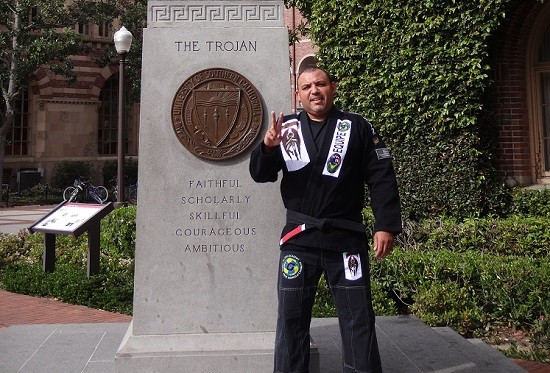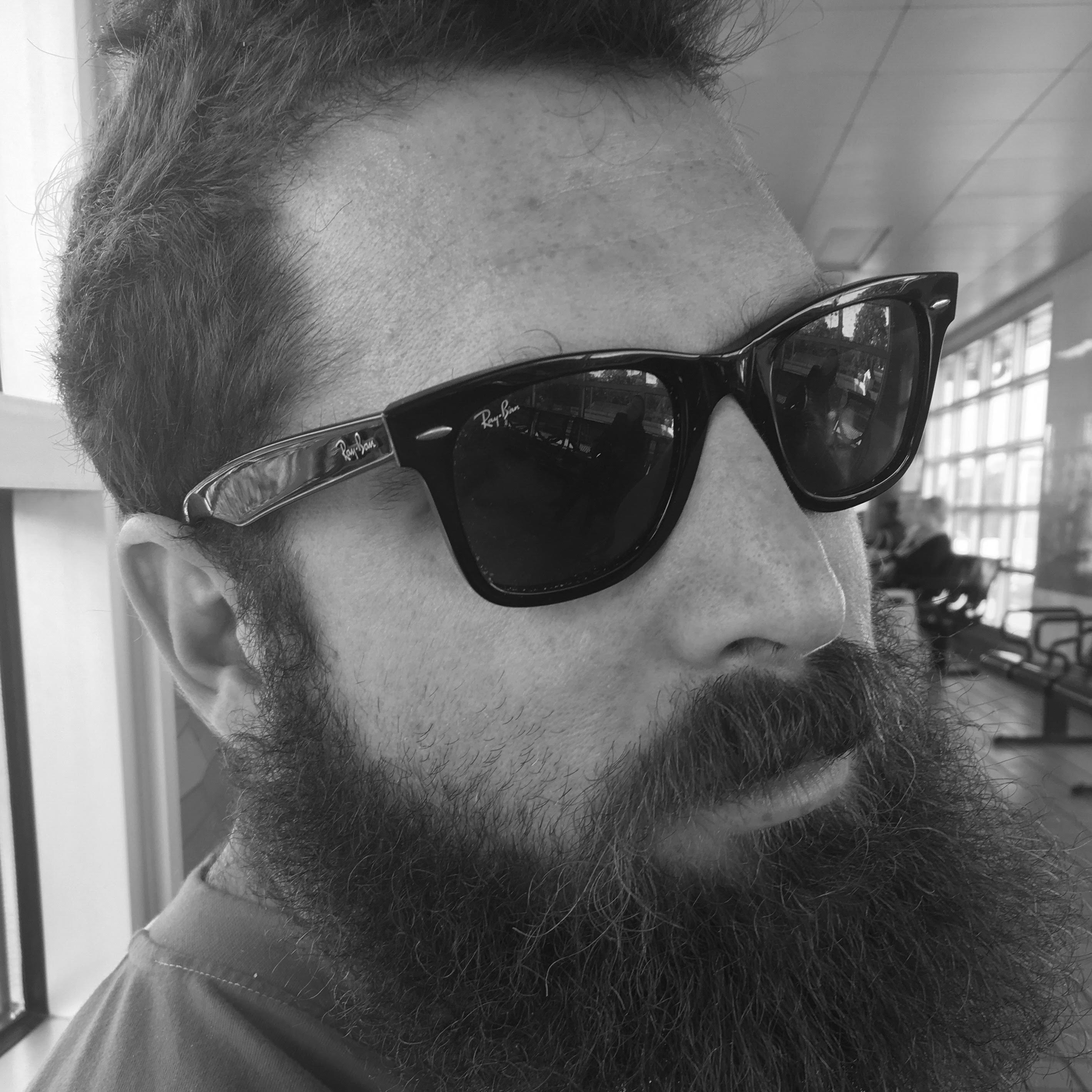
For as long as Brazilian Jiu-Jitsu (BJJ) has been around, students have continuously sought to find new ways to improve their skills and rise through the ranks under the tutelage of their professors.
Unfortunately for many BJJ students, exactly what it takes to transform from a white belt to a black belt (with stops at blue, purple and brown in between) isn't clear. There's no set curriculum at most BJJ schools and MMA gyms, it's entirely up to the instructor to determine when the students are “ready” for a promotion.
Dr. Mark Dearing, a Huntington Beach-based black belt in BJJ who recently finished his doctorate in Educational Leadership at USC, hopes to change that about the sport, and much more.
]
See also: Eddie Bravo Became a Jiu Jitsu Legend with One Win. Can His Fighting Style Now Conquer MMA?
Dearing has spent decades as a teacher and now works as a consultant for BJJ schools all over OC. He believes his methods from the classroom can transfer on to the mats just as well.
“The way people move up in jiu-jitsu, there's no unifying system,” Dearing says. “It's all experiential, whereas everything else is research-based.”
Dearing knows that every situation is different, and that every BJJ student has different desires and goals, just as every instructor has their own reasons for promoting and withholding belts from students. He's not looking to make every dojo, school, and gym conform to a unified rubric, he just wants to see them apply more practical business and teaching techniques.
“I want to bring a different perspective and help diagnose the areas of weakness in dojos, both for business and for education,” Dearing says. “Owners are trying to cater to the MMA world, competitive BJJ, and casual students instead of focusing on one aspect.”
As Dearing is quick to point out, every school has a different feel to it, a different personality that comes down from the top. Some gyms are better-suited for those looking to be a world champion, while others focus on BJJ as a tool to use in an MMA fight. Others yet are best for those who just enjoy the fitness and social aspects of BJJ, and aren't looking to compete in any way, which is something else Dearing believes should be taken more seriously.
“Cognition is affected in part by social processes and cultural contexts. Students develop through their involvement in cultural practices,” Dearing says.
To those who aren't familiar with doctorate-level education lingo, what Dearing means is that part of the learning process for jiu-jitsu practitioners often comes with the bonding that takes place in classes. Dearing believes that the bonding is an important piece of the BJJ puzzle for many students and gyms alike, but that the variation in belt levels can make it difficult for students to teach each other.
“A lot of schools put high belts with white belts, so they can show them what to do, but they struggle to explain it, because they've already mastered the move,” Dearing says. “Sometimes you need to change the learning environment, like they do for kids in school. Break it down to the curriculum and have fun and interesting ways to assess everyone's progress.”
With Dearing's background in education, he believes that his system is what the BJJ world needs to continue growing and improving. If not, the sport could eventually grow stagnant due to some coaches' resistance to share their teaching methods and knowledge with the rest of the community.
“Professional teachers go to professional development, but jiu-jitsu is all within itself. It's all taken from personal knowledge, all from what the professor thinks,” Dearing says. “A lot of coaches, particularly Brazilians, they get their black belt and become like a tight mafia. All of the information that those coaches know stays within them, they're not proliferating the information. Really, there's no mysticism in jiu-jitsu, they're just not showing everything.”
Ultimately, Dearing believes that the future of the sport may hang on BJJ coaches changing their ways. Dearing thinks that using a peer-review system among coaches would work significantly better than the current “you're a world champion, so you're a great coach” model.
“Jiu-jitsu has a lot of profitability, but it needs to have new knowledge coming in. There needs to be peer-reviewed articles and videos,” Dearing says. “Learning in jiu-jitsu should be approached the same way as it is in the classroom. It's the same for adults as it is for children. Approach it with a scientific method, not just the personal experience of a single world champion with an inflated self-concept.”
More information on Dearing's program, Mark Dearing Consulting, Inc., is available on his website.
Twitter: @jcchesler.
Follow OC Weekly on Twitter @ocweekly or on Facebook!

Josh Chesler used to play baseball for some pretty cool teams, but now he just writes about awesome stuff like tattoos, music, MMA and sneakers. He enjoys injuring himself by skateboarding, training for fights, and playing musical instruments in his off time.

